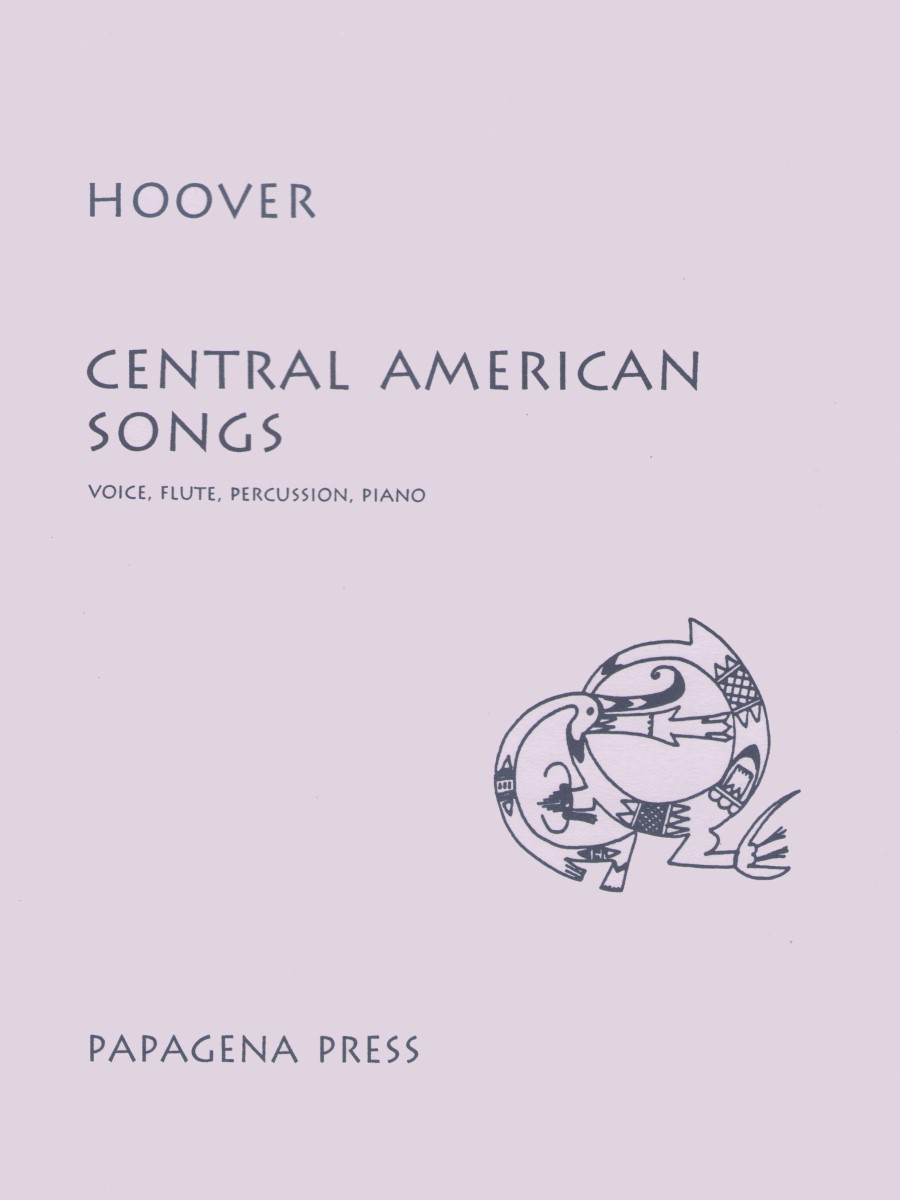Papagena Press / cf / PP349
Central American Songs
Op. 49
$24.99
Katherine Hoover
Scroll down for Related Items listings.
Mixed. I. The woman of Huipil|II. Remedies|III. Prayer for a son disappeared
The poems in this work come directly from the struggles for freedom and integrity found in many Central American countries, and reflect the lives of women caught up in these events.Movement I, The Woman of the Huipil is based on "The Word" by Celina Garcia. Movement II, Remedies is based on a poem by Virginia Grutter ; translated by Janet Rodney. Movement III, Prayer for a son disappeared is based on a poem by Maria Perez Tzu ; transcribed from Mayan and translated by Ambar Past.-K. Hoover
The Central American Songs were written on commission from the Fourth Festival of Women Composers, for Festival directors Sara Mantel, mezzo-soprano, and Susan Wheatley, piano. They were premiered with Carl Adams, flute, and Gary Olmstead, percussion, at Gorell Hall, Indiana University of Pennsylvania, on March 21, 1996.When I was asked to write some songs for this festival (Fourth Festival of Women Composers), my thoughts turned to a most unusual book titled 'IXOK AMAR • GO' (subtitled; Central American Woman's Poetry for Peace), edited by Zoe Anglesey. The book is printed in Spanish and English, with some poems, and the title, in Mayan. The title means; 'Women Going Forward with Love, not BitternessMany of the countries in Central America have the inherently unstable situation of a large population of 'peasants' - largely poor and Native American - and a very small group of extremely rich non-Indian landowners. The latter tends to control the government and army as well as the land and have traditionally cultivated close ties with the US government.During the 1980' s, Nicaragua and El Salvador experience prolonged struggles that stemmed from these harsh disparities, and one is currently active in southern Mexico. In Guatemala, the military government has carried out systematic "actions" against the Mayans, a peaceful, artistic culture. These have included forced removal and massacres. Only in the last few years has the United States tried to discourage these acts, leaving many in the region very bitter indeed. (We still remain the major supplier of weapons to this brutal regime.) The award of a Nobel Peace Prize to a Guatemalan Mayan woman, Rigoberto Menchu, in 1992 focused international attention on the situation and helped curb the atrocities.The poems come directly from these struggles for freedom and integrity, and reflect the lives of women caught up in these events.Movement I, The Woman of the Huipil is based on "The Word" by Celina Garcia. Movement II, Remedies is based on a poem by Virginia Grutter ; translated by Janet Rodney. Movement III, Prayer for a son disappeared is based on a poem by Maria Perez Tzu ; transcribed from Mayan and translated by Ambar Past. A huipil is a colorful and intricately embroidered vest that Mayan women traditionally wear. Until the current repressive climate began in the 1970' s, "America", or "Amerigo" were common names in central America. - K. Hoover
Voicing/Instrument: Piano , Flute , Medium Voice , Percussion - Set of Score and Parts


